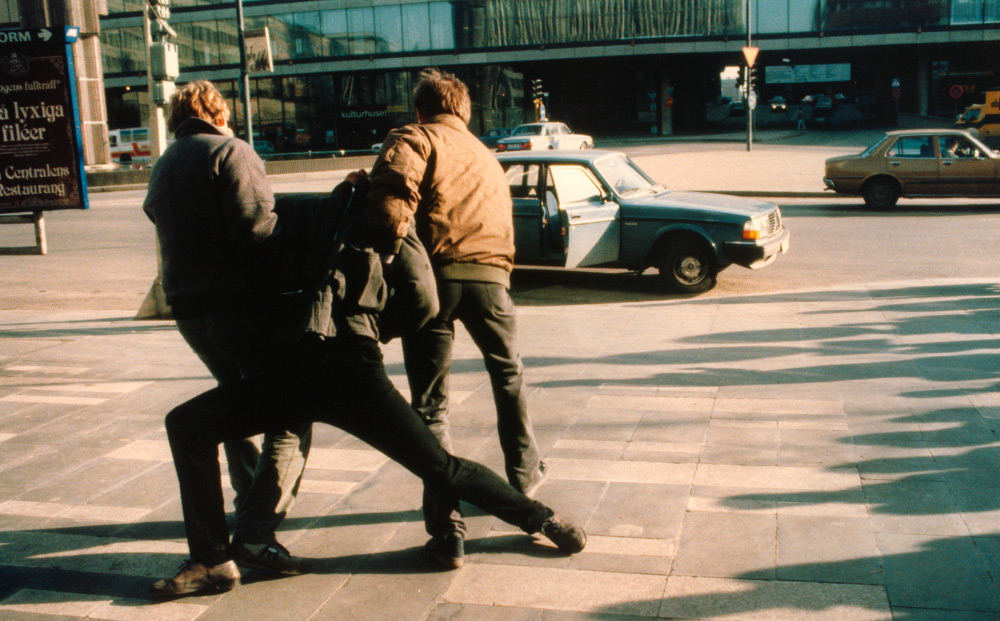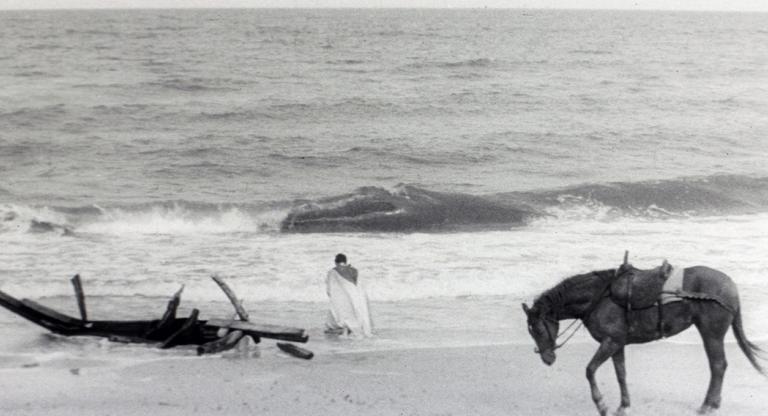Film Forum’s Bo Widerberg retrospective continues with The Man from Majorca (1984), a French Connection inspired conspiracy thriller about two police officers chasing after loose ends. Adapted from the criminologist and novelist Leif G. W. Persson’s The Pig Party, and inspired by a real life political scandal involving the Swedish Minister for Justice, sex workers, and the Soviet Union, Widerberg’s hard-edged cop flick deserves as much attention as its American counterparts—films like the aforementioned William Friedkin Oscar Winner and Sidney Lumet’s Serpico (1973).
Tomas von Brömssen and Sven Wollter (from Widerberg’s previous crime yarn Man on the Roof) star as the two cops at the center of The Man from Majorca. Out patrolling the streets on Saint Lucy’s Day, a popular yuletide holiday in Sweden, they’re called in to chase down a skilled post office robber who escapes their clutches. Things get weirder from there. Within a fortnight, two witnesses to the robbery turn up dead; soon after, more bodies start piling up and our cop duo becomes convinced their case implicates the highest members of Parliament. Throughout, Widerberg’s knack for elliptical editing riles up suspense as the film’s central crime becomes hazier the closer his protagonists get to solving it.
Two separate strains run parallel in The Man from Majorca, and much of Widerberg’s films for that matter. On the one hand, an extremely droll sense of humor; on the other, a somber outlook on life as it’s lived within a culture of conformity. Widerberg’s cops are always bickering about what to eat, and incapable of either enjoying or finishing their meals. When one of them refuses to eat at McDonald’s out of an allegiance to Swedish cuisine, Widerberg kicks off one of the film’s recurring gags, in which the duo feast upon shittier and shittier regional dishes the longer the movie goes on. Their slow-going mission to get to the bottom of their case becomes no more than a series of unpleasant meals, futile chases, prolonged stakeouts, and uneventful nights. Whatever inch of progress they make confirms something truly abhorrent lies at the end of their investigation, but said advances are also met with routine setbacks—witnesses lose their certainty, alibis crop up, clues go missing. The effect is such that corruption becomes irrefutable from the cops’ perspective, but impossible to resolve through standard procedural means.
Widerberg’s insistence on detailing a crime with no solution—much like his depiction of a marriage destined to fail (Love ‘65, 1965), a romance with no happy ending (Elvira Madigan, 1967), or a struggle with no end in sight (Joe Hill, 1971)—exemplifies yet another one of his disappointments with the way things turn out under the conditions dictated by old-fashioned social norms and institutions. In this sense, his cinema is a rebellious one, a constant reminder that life would be much less gruelling if love were a bit more free, labor better rewarded, and, in the case of The Man from Majorca, politicians weren’t using their power to hide wanton corruption.
The Man from Majorca screens tonight, November 12, and tomorrow November 13, at Film Forum as part of the series “Bo Widerberg’s New Swedish Cinema.”



